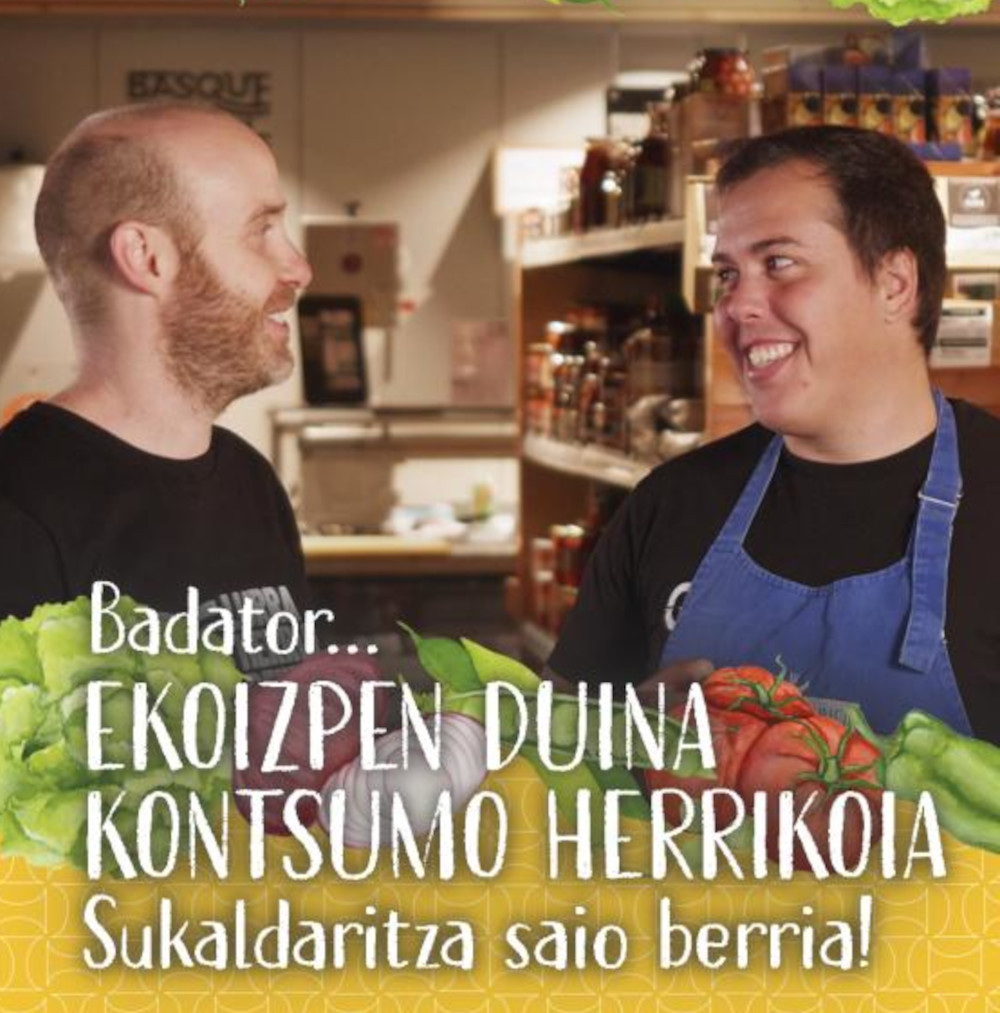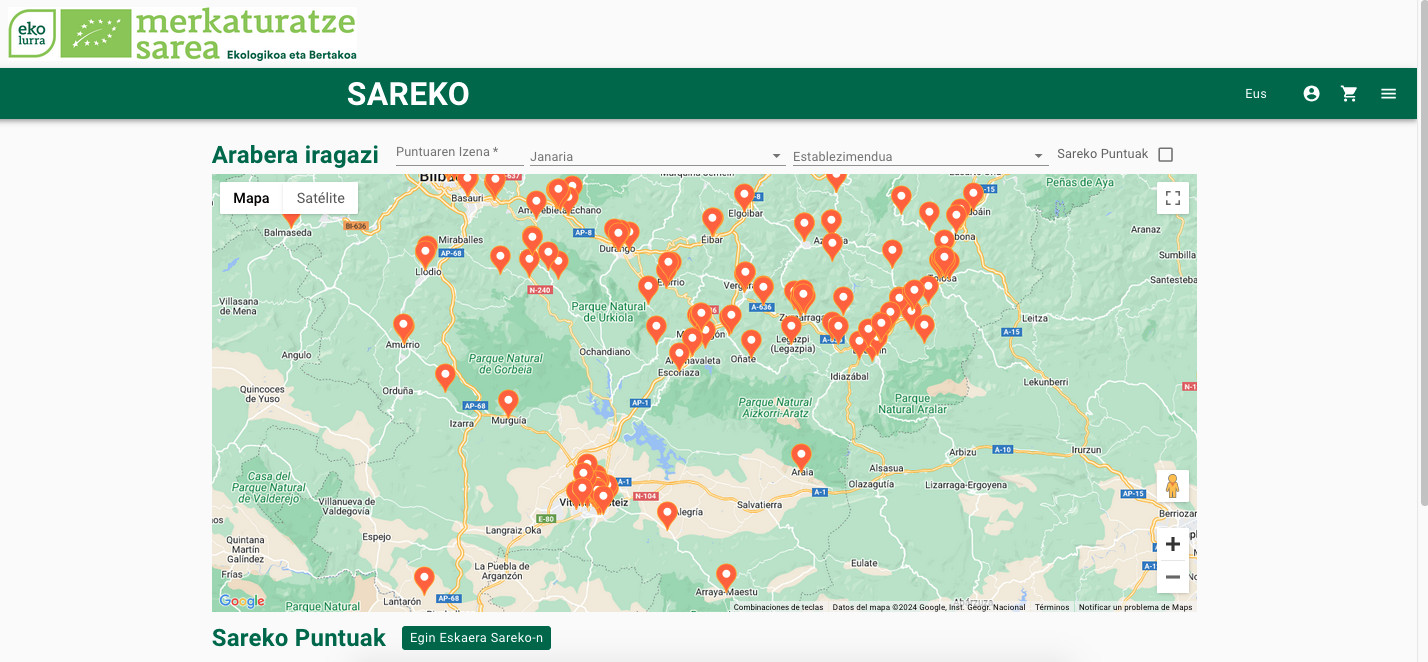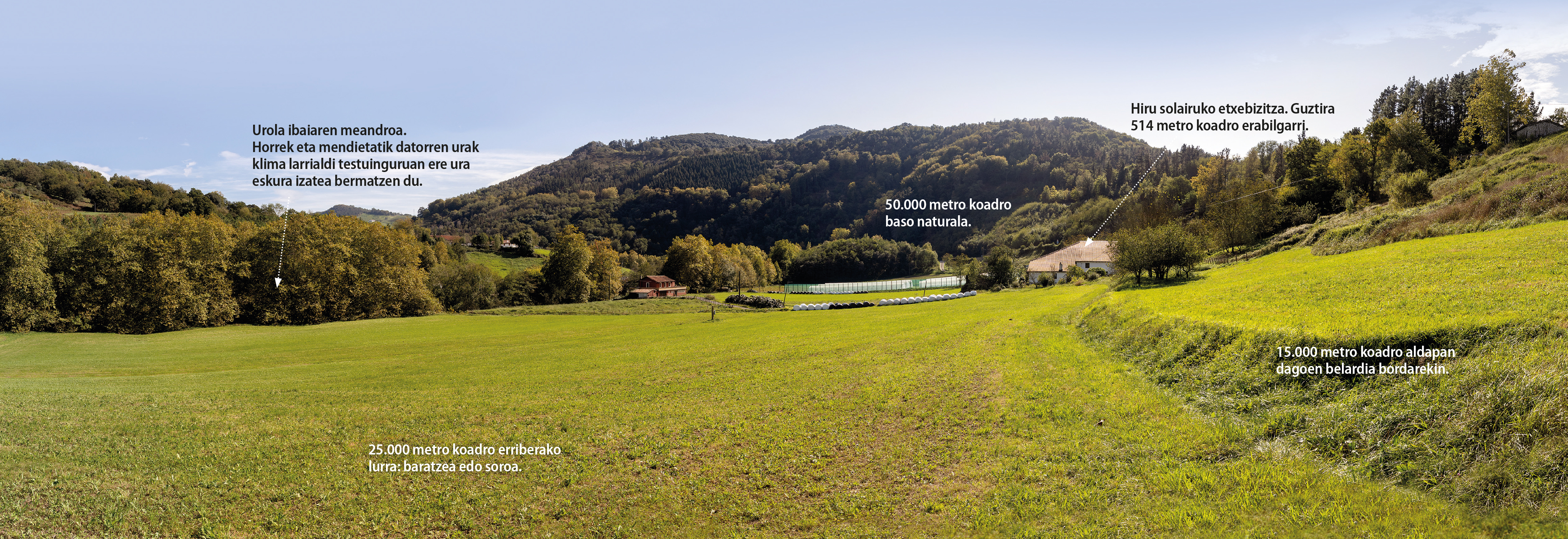Start a cooking session with what’s behind the ingredients
- Cooking shows are fashionable in recent years, many of them we can find on any television channel. But when presenting the recipes, do you take into account where, how and under what conditions the raw materials that use them are produced? It is clear that it is not… Because the Biolur association for organic farming in Gipuzkoa has launched this week a program that takes into account the origin of food and the working and living conditions of the farmers who produce it: “Production Dignified Popular Consumption”, presented by Xabi Izagirre, from the Azpeitia Food Center and produced by Hiru Damatxo. This is the first session.

The programme is based on the “Duina” study carried out by Biolur to study the viability of organic orchards and the price of vegetables. The study conclusions were presented in September. “We are working on different ways of disseminating and disseminating this work to different audiences, and to this end we have launched a cooking session,” said Maider Zubikarai, a member of the association and co-author of the study. Data from 12 organic farmers and 12 crops were collected in “Duina”, of which four prepared recipes from the trials. His creator is Sabrina Pato, of Ereindajan.
Each program will feature a public character: the humorist Julen Portillo, the bertsolari and journalist Onintza Enbeita, the film critic Gaizka Izagirre and the music Uxue Amonarriz. Producers of the products used in the recipe will also be interviewed. “In the end, the idea is to show that with these cereals you can make clean, special and simple recipes, using good raw materials and at a good price,” he adds. When it comes to “good price”, it is clearly a question of making them worthy of the producers. Pumpkin pizza, broccoli salad couscous, acellular cakes with honey sauce and mustard and carrot cake are the recipes of the four sessions. During the month of March, Thursdays at 10:00 will be uploaded to Biolur’s Youtube channel and will be seen on several local television channels and on the ARGIA website.
Educational material available
But the cooking program is not the only content they have created to make the “Duina” research public. In fact, in addition to the regional research presentations, Biolur has created a teaching and pedagogical material for school communities and families (available here). The 12 cereals are organized by seasons, each proposes a recipe and children and young people are offered exercises: “They have to relate raw materials and quantities to the price. Suppose the chosen crop is Gernika's pumpkin to make a pizza based on this pumpkin. If the 600 grams of pumpkin needed cost €1.80 to be worthy for the producer, the price of this recipe will be calculated for four people.”
It is about teaching that production can be both dignified and popular, and raising awareness among children. At the moment they have the material in physical support, but they plan to take it out later in digital.






















